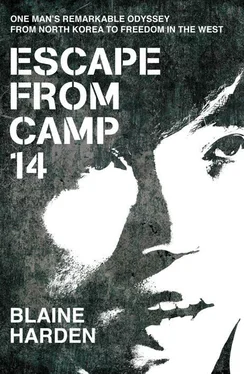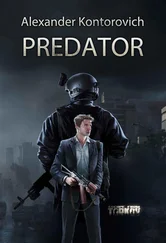The first two took all morning. After a lunch of milled corn and salted cabbage, the exhausted children, their faces and clothes covered in coal dust, headed back to the coalface, carrying candles in the ink-black mine.
One day, pushing the third car, Moon Sung Sim lost her balance and one of her feet slipped beneath a steel wheel. Shin, who was standing next to her, heard a scream. He tried to help the writhing, sweating girl remove her shoe. Her big toe was crushed and oozing blood. Another student tied a shoelace around her ankle as a kind of tourniquet.
Shin and two other boys lifted Moon into an empty coal car and pushed it to the top of the mine. Then they carried her to the camp hospital, where her mangled toe was amputated without anaesthetic and treated with salt water.
In addition to harder physical work, secondary school students spent more time finding fault with themselves and each other. They wrote in their cornhusk notebooks, preparing for the nightly self-censure sessions that took place after the evening meal. About ten students a night had to admit to something.
Shin tried to meet with his classmates before these sessions to sort out who would confess to what. They invented sins that would satisfy teachers without provoking draconian punishment. Shin remembers confessing to eating corn he found on the ground and to taking a catnap when no one was looking. If students volunteered enough transgressions, punishments were usually a smack on the head and a warning to work harder.
Wedged closely together, twenty-five boys slept on the concrete floor in the secondary school dormitory. The strongest boys slept near — but not too near — a coal-heated flue that ran under the floor. Weaker boys, including Shin, slept farther away and often shivered through the night. Some had no choice but to try to sleep on top of the flue, where they risked severe burns when the heating system flared up.
Shin remembers a stoutly built, prideful twelve-year-old named Ryu Hak Chul. He slept wherever he chose and was the only boy who dared sass a teacher.
Ryu ditched his work assignment one day, and his disappearance was quickly reported. His teacher sent Shin’s class to find the missing boy.
‘Why’d you stop working and run away?’ the teacher asked when Ryu had been found and marched back to school.
To Shin’s astonishment, Ryu did not apologize.
‘I got hungry, so I went to eat,’ he said flatly.
The teacher, too, was astonished.
‘Is this son of a bitch talking back?’ the teacher asked.
He ordered the students to tie Ryu to a tree. They took off his shirt and bound him with wire.
‘Beat him until he comes to his senses,’ the teacher said.
Without a thought, Shin joined his classmates in thrashing Ryu.
Shin was nine years old when the North Korean caste system knocked him on the head.
It was early spring and he and about thirty of his classmates were walking towards the train station, where their teacher had sent them to pick up coal that had spilled from railroad cars during loading. The station is near the south-western corner of Camp 14, and to get there from school the students had to pass below the Bowiwon compound, which sits on a bluff above the Taedong River. The guards’ children live in the compound and attend school there.
From up above, the guards’ children shouted at Shin and his classmates as they walked by.
‘Reactionary sons of bitches are coming.’
Rocks the size of fists rained down on the prison children. With the river below and the bluff above, they had no place to hide. A rock hit Shin in the face, just below his left eye, opening up a deep cut. Shin and his classmates shrieked and cowered on the dirt road, trying to protect their heads with their arms and hands.
A second rock struck Shin on the head, knocking him to the ground and making him dizzy. When his head cleared, the stoning had stopped. Many of his classmates were moaning and bleeding. Moon, his neighbour and classmate who later lost her big toe in the mine, had been knocked out. The leader of Shin’s class, Hong Joo Hyun, who was supposed to be a kind of foreman for the day’s work mission, was also out cold.
Earlier that morning at school, their teacher had told them to hurry ahead to the train station and start work. He said he would catch up later.
When the teacher finally walked down the road and discovered his bloodied students sprawled in the road, he became angry.
‘What are you doing not getting yourselves to work?’ he shouted.
The students timidly asked what they should do with their classmates who were still unconscious.
‘Put them on your backs and carry them,’ the teacher instructed. ‘All you need to do is work hard.’
In the years ahead, when Shin spotted Bowiwon children anywhere in the camp, he walked in the opposite direction if he could.
Bowiwon children had every reason to throw stones at the likes of Shin. His blood, as the offspring of irredeemable sinners, was tainted in the worst conceivable way. Bowiwon children, however, came from families whose lineage had been sanctified by the Great Leader.
To identify and isolate his perceived political enemies, Kim Il Sung created a neofeudal, blood-based pecking order in 1957. The government classified and, to a considerable extent, segregated the entire North Korean population based on the perceived reliability of an individual’s parents and grandparents. North Korea called itself the Worker’s Paradise, but even as it professed allegiance to communist ideals of equality, it invented one of the world’s most rigidly stratified caste systems.
Three broad classes were created with fifty-one subgroups: at the top, members of the core class could obtain jobs in government, the Korean Workers’ Party, officer ranks in the military and the intelligence services. The core class included farm workers, families of soldiers killed during the Korean War, families of troops who had served with Kim Il Sung fighting against Japanese occupation and government workers.
The next level was the wavering or neutral class, which included soldiers, technicians and teachers. At the bottom was the hostile class, whose members were suspected of opposing the government. They included former property owners, relatives of Koreans who had fled to South Korea, Christians and those who worked for the Japanese colonial government that controlled the Korean Peninsula before World War II. Their descendants now work in mines and factories. They are not allowed into universities.
Besides dictating career opportunities, the system shaped geographic destiny, with the core class allowed to live in and around Pyongyang. Many members of the hostile class were resettled to distant provinces along the Chinese border. Some members of the wavering class could move up in the system by joining the Korean People’s Army, serving with distinction and, with luck and connections, securing a lower rung in the ruling party.
Rapid growth of private markets made some traders from the wavering and hostile classes wealthy, allowing them to buy and bribe their way into better living standards than some of the political elite. [8] Author interviews with defectors between 2007 and 2010. The system is also well described by Andrei Lankov in North of the DMZ (Jefferson, NC: McFarland & Company, 2007), 67–69; and by Hassig and Oh in The Hidden People of North Korea , 198–99.
For government positions, though, family background decided nearly everything, including who had the right to throw stones at Shin.
The only North Koreans considered trustworthy enough to become guards in political prison camps were men like An Myeong Chul, the son of a North Korean intelligence officer.
Читать дальше












